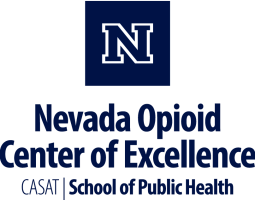Part 1: Overdose Education
Learning Objectives:
- Have a fundamental understanding of Nevada’s Good Samaritan Act
- Introductions to opioids local trends
- Factors that may increase the likelihood of an overdose
- How to recognize and respond to an overdose situation
Part 2: Verbal De-Escalation 101
Behavioral health, mental health, medical and allied health care professionals are likely to encounter situations in their careers in which a de-escalation intervention is the most appropriate, ethical, and therapeutic response to provide a client who is in an agitated state. This course is an introductory course on what de-escalation is, how to identify situations where de-escalation interventions are appropriate, and the de-escalation steps and techniques that one can apply in general behavioral and mental health settings. This course is not for those professionals working in population specific settings where de-escalation is required on a regular basis to maintain milieu harmony (e.g., residential setting for severe behavioral and/or mental health disorders),where more advanced trainings specialized for the specific population is appropriate.
Location: University of Nevada, Reno: Main Campus, 1664 N. Virginia Street, Reno, NV 89557 – William Raggio Building, Room 3004
Presenters: Crystal Jaquette, MA, LMFT and Morgan Green, MS
Continuing Education Units: 3 CEUs This training is approved for continuing education by the boards listed here.
Funding for this activity was made possible in whole or in part by the Nevada Department of Health and Human Services (DHHS) Director’s Office through the Fund for a Resilient Nevada, established in Nevada Revised Statutes 433.712 through 433.744. The opinions, findings, conclusions, and recommendations expressed in our courses are those of the author(s) and do not necessarily represent the official views of the Nevada Opioid Center of Excellence or its funders.

